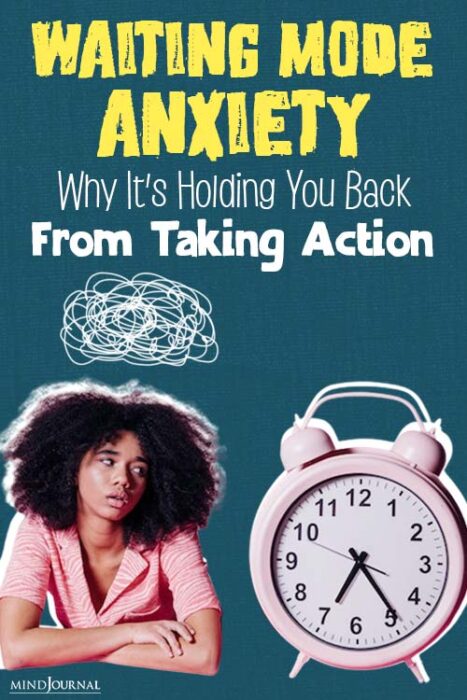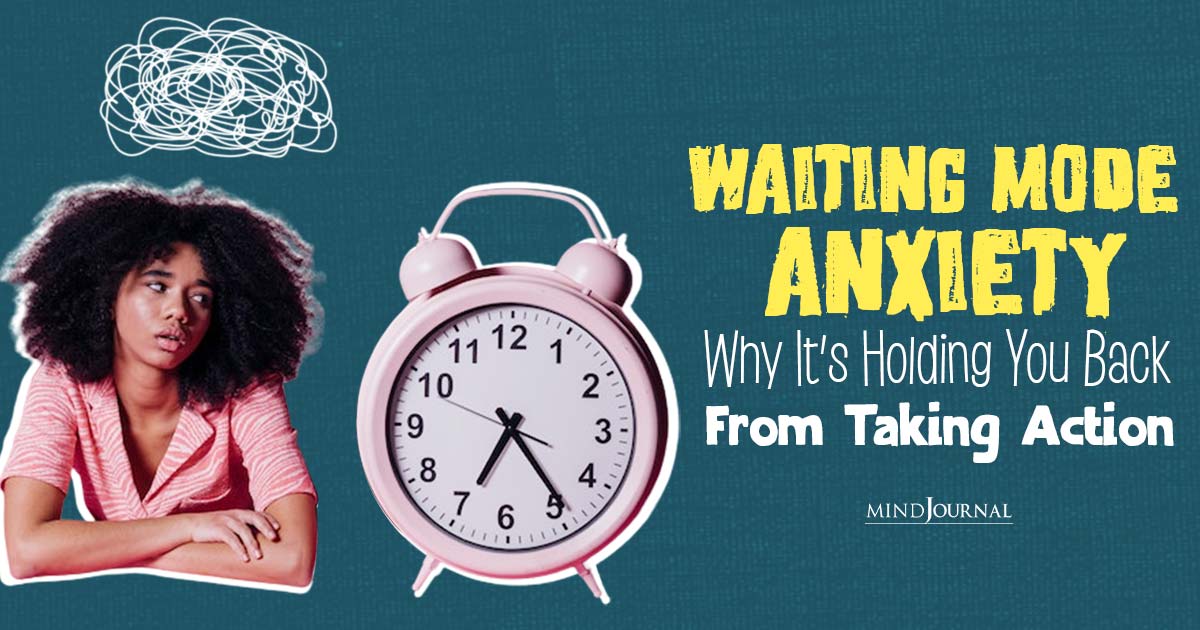In today’s fast-paced world, where every moment counts, the concept of “waiting mode anxiety” has become an all-too-familiar experience for many.
Whether you’re awaiting an important meeting, a doctor’s appointment, or any other significant event, the relentless countdown can hijack your focus and productivity.
In this article, we’ll delve into the nuances of waiting mode anxiety, understand its underlying causes, and explore practical ways to break free from its clutches.
What is Waiting Mode Anxiety?
Waiting mode is a state of mental limbo where you find yourself stuck, disconnected from your daily tasks and responsibilities, while anticipating a future event.
It’s as if time stands still, and you become entrapped in the countdown to that impending moment. Your ability to concentrate wanes, your to-do list remains untouched, and even the simplest of tasks seem insurmountable.
This phenomenon is not exclusive to a select few; in fact, it’s a common experience that transcends age, profession, or background.

Read more here: What Is Bed Rotting Trend? How Taking A Break Can Improve Your Well-Being
Waiting mode can be triggered by various circumstances, from job interviews and exams to doctor’s appointments and social gatherings. It’s a psychological state characterized by heightened anxiety and a desire to regain a sense of control.
Anxiety, ADHD and Waiting Mode
Therapists and mental health professionals often associate waiting mode ADHD and anxiety to be linked.
Individuals with ADHD often struggle with impatience while waiting, a challenge stemming from their limited attention span and heightened distractibility. The anticipation of idle moments can trigger anxiety as they perceive a multitude of pressing tasks to attend to.
This impatience can manifest in various aspects of life, from waiting in line to waiting for results or responses. Managing this aspect of ADHD involves developing coping strategies and techniques to make waiting periods more tolerable and productive.
When faced with an upcoming event, your brain may react by going into a state of hyperarousal, seeking to prepare you for the unknown. This heightened state of alertness can lead to a compulsive need to focus solely on the impending event, as if shutting out all other distractions will somehow ensure your readiness.
Read more here: Is Phone Call Anxiety Taking A Troll On Your Mental Health? 5 Signs You Shouldn’t Ignore!
Amy Braun, a licensed therapist, explains that waiting mode serves as a coping mechanism to manage the overwhelming anxiety that can accompany these moments of anticipation.
By putting aside other tasks and responsibilities, you create a semblance of control over your surroundings, providing a temporary reprieve from the chaos of life’s uncertainties.
How To Escape The Clutches of Waiting Mode?
While waiting mode may provide a fleeting sense of control, it often comes at the expense of productivity and well-being. Fortunately, there are strategies you can employ to break free from its grasp and make the most of your time leading up to an event:
Overcoming waiting mode ADHD:
- Be Mindful: Recognize when you’re stuck in anticipation mode. Awareness is key for change.
- Set Mini-Goals: Stay engaged by achieving small tasks like work, a short walk, or organizing.
- Time Blocking: Organize your day into task-focused time blocks.
- Stay Informed, Not Obsessive: Be prepared, but avoid constant clock-checking.
- Relaxation Techniques: Use deep breathing or meditation to combat anxiety.
- Prioritize Self-Care: Engage in activities like exercise or spending time with loved ones.
- Positive Visualization: Visualize success to reduce anxiety and boost confidence.
- Seek Professional Help: Consider therapy if waiting mode consistently disrupts your life.
Overcoming Waiting Mode In Anxiety:
- Mindful Breathing: Practice deep breathing to stay grounded.
- Productive Distraction: Engage in tasks or hobbies to pass time.
- Set Goals: Define what you’ll achieve while waiting.
- Positive Self-Talk: Challenge negative thoughts.
- Time Management: Plan activities for the waiting period.
- Relaxation Techniques: Try meditation or progressive muscle relaxation.
- Connect: Chat with friends or network to make waiting enjoyable.
- Acceptance: Embrace uncertainty; not all waits can be controlled.
Waiting mode and ADHD or anxiety grip our focus and productivity. While it can be a natural response to anticipate, but it shouldn’t become a constant hindrance in our lives.
Read more here: What Is ‘Menu Anxiety’? Here Is How Millennials And Gen Z Can Beat This Culinary Dilemma
By recognizing its presence, employing mindfulness, and implementing practical strategies, we can reclaim our productivity and peace of mind. Remember, life is not just about the moments we’re waiting for; it’s also about the moments we live in.
Frequently Asked Questions (FAQs)
Is waiting mode a symptom of ADHD?
Waiting mode is not a symptom of ADHD; it’s a common experience for many people with this condition.
How do I deal with waiting mode anxiety?
To deal with this type of anxiety, practice deep breathing, mindfulness, or engage in a calming activity like reading or listening to music.
How do I get out of waiting mode?
Get out of waiting mode by setting a timer for a specific task or using a to-do list to stay productive while waiting.









Leave a Reply
You must be logged in to post a comment.